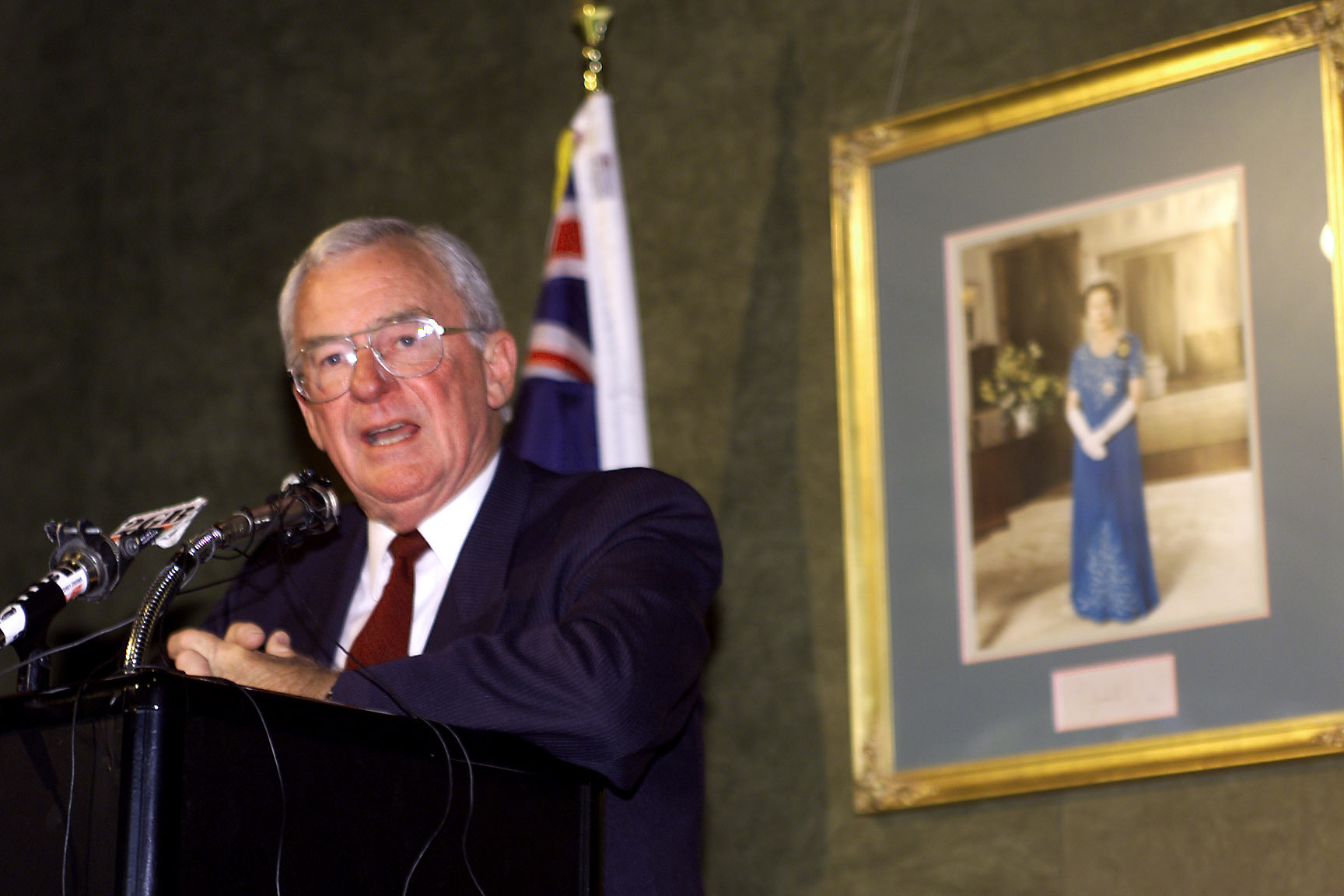Vale Bill Hayden, a dedicated foreign minister
November 1, 2023
Bill Haydens five years as foreign minister have received some attention in the week since his death. However, theres more to say about his contribution to an independent foreign policy that allowed its diplomats to hold their heads high.
The tributes written to remember Bill Hayden have not fully captured the man I knew, best during 1988, when I worked in his office as the Foreign Affairs and Trades departmental liaison office, and subsequently in meetings and discussions when he was Governor-General and thereafter.
So I returned to Haydens autobiography (1996) to refresh my memory of his time as foreign minister. He termed that period an exile, chosen once he stood down as Opposition Leader. Leading the Australian Labor Party remained, he wrote, an unparalleled highlight, though in quite typical self-deprecation, he admitted that he was not a virtuoso performer and was someone fighting above his division and beyond his class. Bill always had a chip on his shoulder about his humble beginnings and retained a keen sense of class divisions, something very much on show for us Canberra public servants when we arrived at his electorate office in Ipswich.
Bill we all called him Bill, except one of the departmental staff, who persisted with Mr Hayden – took the foreign affairs portfolio in March 1983 (the month I joined the department), knowing that his clout in the Party had well and truly peaked, still wanting to serve but also to avoid unnecessary conflict with cabinet colleagues. It was, he concluded, a wise choice because mostly he and the Prime Minister, Bob Hawke complemented each other on foreign policy matters. Here its worth a diversion to quote Bill on Hawke and the Middle East:
Hawke had an oddly passionate commitment to Israel, my sympathies for the rights of the Palestinian people had also been made clearParadoxically, it was Hawke who made the really tough commentary about Israels handling of problems…[Hawke asked in a speech to the Australian Jewish Community] is there not emerging the danger of Israel being blinded to the threat to its very soul and the vision of its founders?
Plus a change.
My involvement with Bill was primarily on Southeast Asia I had not long returned from a posting to Jakarta when I joined his office in 1988. By then the dialogue he was leading on Indochina initially Hawkes proposal was proceeding on various levels. One of my first jobs was to attend second-track discussions between China, Vietnam, Kampuchea, Russia on Moreton Island. Even having these non-governmental representatives around a table well out of the public gaze would have been unthinkable a few years earlier. Much of this behind-the-scenes work laid the foundations for the subsequent achievements made by Gareth Evans, Bills successor.
Somehow, despite all the busyness of a ministerial office, where the day started early and finished very late Bill didnt need much sleep there was time for reflection on the big issues. Bill saw Australias future in Asia. He was diligent not only representing its immediate foreign, economic and strategic interests but also thinking about our broader engagement. Early in my time in the office he asked me to write a background paper on Asian values and Confucianism. He wanted to better understand the complexity of Asia and to use his knowledge to best prosecute Australias case, behind closed doors when that seemed the most effective course. That did not mean shying away from establishing an independent Australian voice on peace and disarmament. If only that voice was unmuted today!
Even though we all worked cheek by jowl in a narrow office in the Old Parliament House, Bill determinedly kept politics and policy separate. While Bill knew this was his last ministerial job, neither I nor the other departmental staff were aware he would be appointed governor-general until the news was leaked from within the Labor Party.
From the start of his tenure, Bill showed a strong interest in the administration of the Department. When he took over from Tony Street, the Coalition Foreign Minister, in 1983, Bill shook things up. Always a bit suspicious of smooth-talking bureaucrats, he made it clear they could no longer expect their advice to be accepted without question. Submissions had to include alternatives to the departments recommended course of action. This imposed a discipline on ministerial briefings that served us all well and got us to think more broadly about the complexities of decision making in Cabinet. We knew not to second-guess the minister.
Bill also recognised that the Department of Foreign Affairs did not represent itself effectively within domestic policy arenas, nor was it adequately involved in international commerce and trade. He therefore lobbied for the amalgamation of trade and foreign affairs, which was achieved in 1987. What a culture shock! Those of us on the foreign affairs side had to learn a whole new set of rules about international engagement and the language of trade negotiation. I was certainly not alone in feeling exposed by my poor knowledge of economics. And the trade officials had to accept that human rights and other foreign policy considerations could not be dismissed when it came to selling Australian beef and coal.
Working in Bill Haydens office put me off the rough and tumble of politics. It did, however, teach me much about middle-power diplomacy at both the bilateral and multilateral levels. During his tenure as foreign minister, Australia pursued a foreign policy grounded in a set of decent principles about the rule of law and a nations wellbeing and informed by both rational and pragmatic thinking. It saddens me to have witnessed how impoverished that legacy has become.

